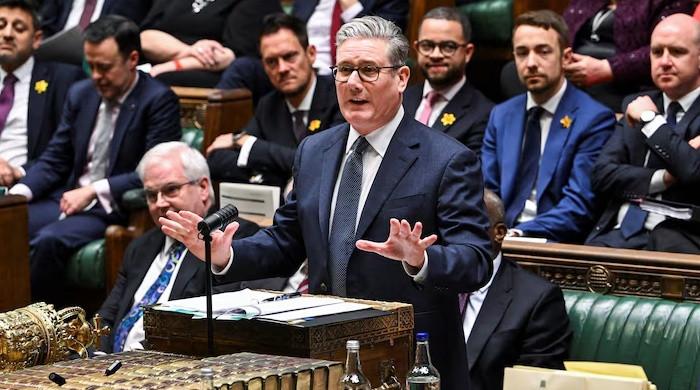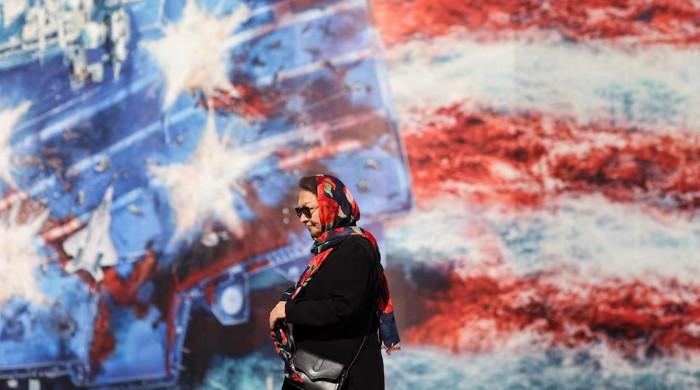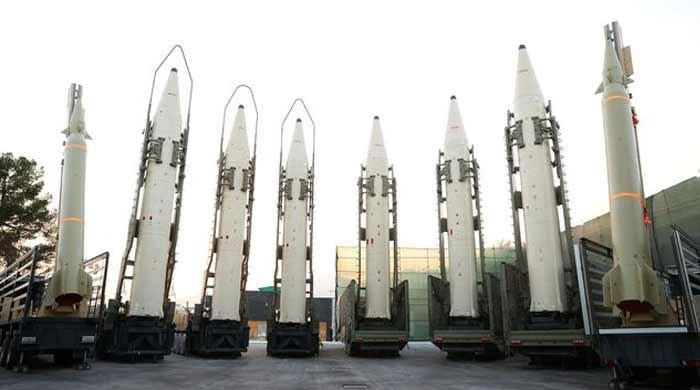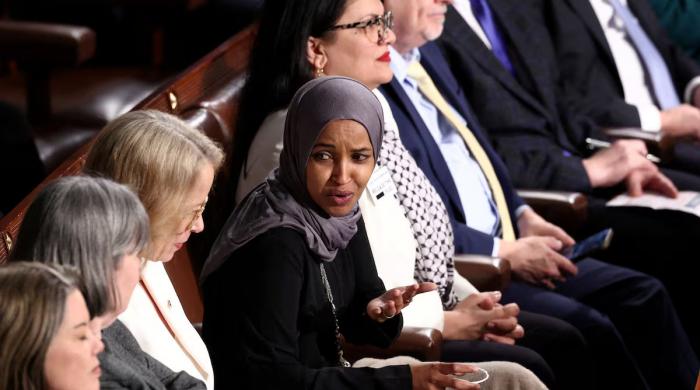Deepfakes on rise: Battle to distinguish reality from fiction ahead of US polls of 2024
Companies like Midjourney are now offering accessible and cost-effective solutions to create highly convincing deepfakes
May 31, 2023
![[2/5] Former U.S. President and Republican presidential candidate Donald Trump speaks at a campaign event in Manchester, New Hampshire, April 27, 2023.—Reuters](https://www.geo.tv/assets/uploads/updates/2023-05-31/490271_3117295_updates.jpg)
The collision of America's 2024 presidential race with the rapid advancement of artificial intelligence has given rise to a phenomenon known as "deepfaking." Videos featuring deepfakes, such as a surprise online endorsement of Ron DeSantis by Hillary Clinton and a cruel rant by Joe Biden towards a transgender person, are flooding social media platforms, blurring the lines between reality and fabrication in the politically charged landscape.
While synthetic media, including deepfakes, has existed for some time, recent developments in "generative AI" tools have amplified its prevalence. Companies like Midjourney are now offering accessible and cost-effective solutions to create highly convincing deepfakes, leading to an explosion of such content on social media. This surge in deepfakes poses a significant challenge for voters trying to discern genuine information from manipulated content.
Darrell West, a senior fellow at the Brookings Institution's Center for Technology Innovation, expressed concerns about the potential misuse of this technology. Supporters of both Trump and Biden could exploit deepfakes to tarnish their opponents' reputations, making it even more challenging to distinguish truth from falsehood. The timing of these manipulations, right before the elections, would leave little opportunity for fact-checking or takedowns.
While major social media platforms have made efforts to combat deepfakes, their effectiveness varies. Facebook, Twitter, and YouTube have implemented policies to prohibit and remove deep fake content, but their enforcement mechanisms have limitations. Moreover, the release of generative AI tools with insufficient safeguards has fueled an AI arms race, leaving room for the spread of harmful misinformation.
The issue of deepfakes has caught the attention of industry leader OpenAI, which has urged rapid regulation of the sector to preserve election integrity. Although OpenAI has taken steps to restrict the political use of its products, including blocking the creation of images of public figures, gaps in these policies remain. Smaller startups like Midjourney have yet to impose explicit restrictions on political content.
The growing prevalence of generative AI in politics extends beyond deepfakes. Political players are exploring the potential of AI-generated content to enhance their campaigns. The Republican National Committee published a high-profile AI-generated political ad, highlighting the technology's potential impact. Additionally, political consultancies are experimenting with AI for content generation, blurring the boundary between reality and the virtual world.
As generative AI evolves, the challenge of combatting misinformation and ensuring election integrity becomes increasingly complex. While AI tools offer opportunities for levelling the playing field in campaigns, the risks of manipulation and deception loom large. Efforts to strike a balance between innovation and responsible use of AI in the political landscape are crucial to safeguard democracy and maintain public trust.











